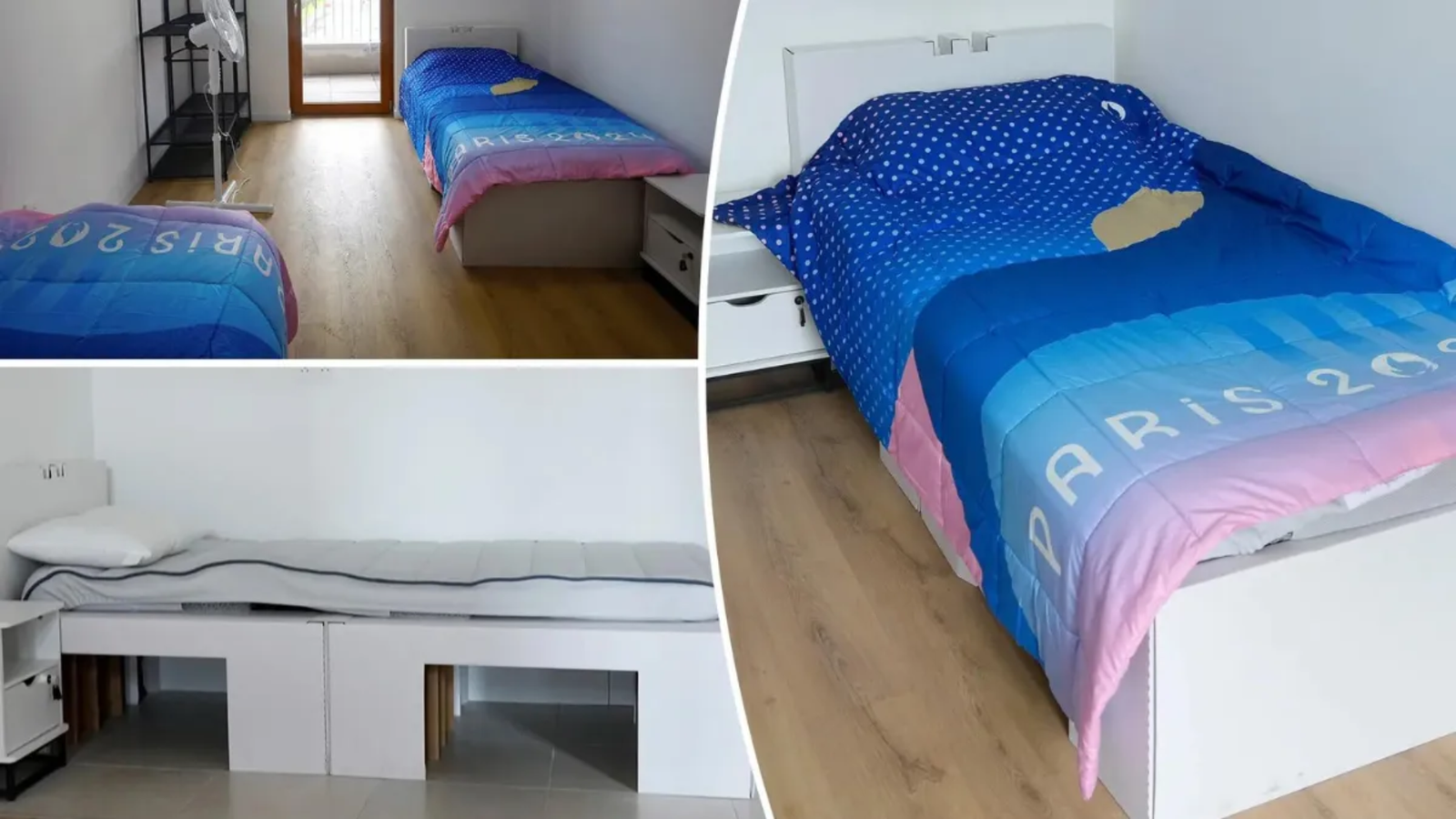## Paris 2024: Olympic Village Beds Designed for Sustainability, Not for “Anti-Love” Measures, Insist Organizers 💫
The upcoming Paris Olympics in 2024 have ignited a whirlwind of excitement and anticipation, but amidst the fervor, a curious discussion has emerged. It centers around a rather peculiar facet of the Games: the beds in the Athletes Village. Often viewed as a breeding ground for casual encounters and revelry during the Olympic Games, these beds have become the subject of intense scrutiny.
The organizers of the Paris Games have adamantly assured the world that the twin-sized beds, crafted from environmentally conscious materials, are not intended to curb any amorous activities. They are a testament to the Games’ commitment to sustainability, not a measure to discourage “love connections.” 🛏️
This bold claim has sparked widespread intrigue and debate. While the organizers emphasize sustainability as the driving force behind the design, many observers remain skeptical. Some see a veiled attempt to impose a more restrained atmosphere within the Athletes Village, where athletes from all corners of the globe congregate, fueled by adrenaline and camaraderie.
Let’s delve into the heart of the matter, examining both sides of this intriguing narrative:
The Sustainable Saga:
The Paris 2024 organizing committee has been vocal about their commitment to hosting a sustainable Games. The eco-conscious design of the beds, crafted from recycled materials, is a prime example of this philosophy. 🌎
These beds, dubbed “eco-friendly” and “durable,” are designed to be disassembled and repurposed after the Games, minimizing waste and promoting circularity. This eco-conscious approach resonates with the broader movement towards sustainable practices, particularly in the realm of major sporting events.
The “Anti-Love” Counterpoint:
However, the twin-sized design has fueled speculation regarding its impact on the infamous Athletes Village culture. Critics point to the inherent limitations of a twin bed in accommodating romantic encounters, suggesting a deliberate attempt to curtail intimacy.
This perspective casts a shadow on the Games’ commitment to fostering a welcoming and inclusive environment. The “anti-love” narrative, though largely speculative, has triggered concern among athletes and observers alike. 💔
A Deeper Dive:
It is important to acknowledge that the “anti-love” angle is not a universally shared sentiment. Some athletes have expressed their indifference to the bed size, stating that their primary focus remains on their performance. 🥇
Others have even embraced the idea of promoting sustainable practices, arguing that it is a positive step towards environmental responsibility. These contrasting views highlight the complexities of this debate, defying easy categorization.
Beyond the Beds:
The focus on the beds should not overshadow the broader context of the Games. The Paris 2024 organizers have made significant efforts to promote inclusivity and accessibility, emphasizing the importance of welcoming athletes from diverse backgrounds. ♿
These efforts are commendable and align with the spirit of the Olympics. The focus on sustainability and inclusivity represents a positive shift in how major sporting events are conceptualized and executed.
A Call for Transparency:
Despite the organizers’ assurances, the debate over the beds is likely to persist. To foster greater transparency and address concerns, the organizers could consider engaging in a more detailed and open dialogue with athletes, sharing their rationale behind the bed design. 🗣️
This would allow for a deeper understanding of the rationale behind the design and address potential misconceptions. It could also lead to valuable feedback from athletes themselves, shaping the future of the Athletes Village experience.
Conclusion:
The Paris 2024 Olympic Village beds stand as a testament to the evolving priorities of major sporting events. The focus on sustainability is a positive step towards a more environmentally conscious future, but it is crucial to ensure that this focus does not come at the cost of inclusivity and respect for athletes’ personal lives.
The debate surrounding the beds underscores the importance of transparency, open communication, and a commitment to creating an environment that is both sustainable and welcoming for all athletes. As the Games approach, it remains to be seen whether the “anti-love” narrative will fade, or if the beds will continue to spark controversy.
